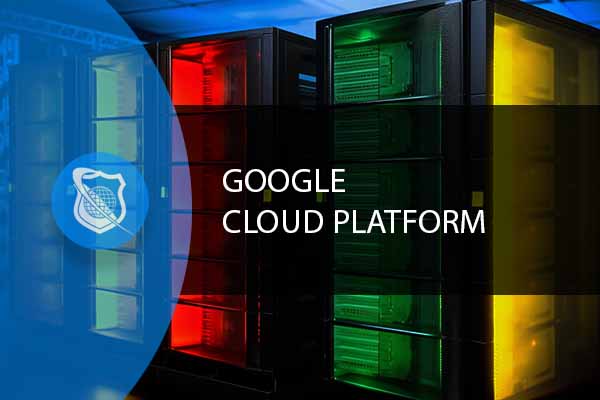Cloud computing has emerged as a cornerstone of modern business and technology and GCP is one of the top tier cloud offerings. At the heart of this revolution stands Google Cloud Platform (GCP), a sophisticated suite of cloud services brought forth by a name synonymous with internet innovation – Google. But what exactly is GCP, and why has it become such a vital tool for businesses and developers alike?
Demystifying GCP: More Than Just Cloud Storage
At its core, GCP is a public cloud vendor, akin to its well-known counterparts, Amazon Web Services (AWS) and Microsoft Azure. However, to view GCP merely as a cloud storage solution would be to overlook its multifaceted nature. GCP is a comprehensive platform offering a broad spectrum of services from computing power, data storage, and machine learning capabilities to modernizing IT infrastructure, powering web and mobile applications, and facilitating advanced analytics.
The Google Connection: Familiar Services, Unseen Infrastructure
Many of us interact daily with Google’s popular services like YouTube, Gmail, or Google Maps. Unbeknownst to most, the underlying force powering these applications is GCP. This invisible yet powerful infrastructure showcases the platform’s capabilities – reliability, scalability, and state-of-the-art security, all of which are crucial in today’s fast-paced digital landscape.
GCP’s Offering: A Glimpse into a Vast Array of Services
GCP stands out for its vast array of services and tools designed to meet diverse needs. From GCP cost management for budget-conscious startups to data management solutions for large enterprises, GCP’s suite is all-encompassing. The platform is not just about providing computing resources; it’s an enabler of innovative technologies like AI and machine learning, offering tools that transform how businesses approach complex challenges.
GCP vs. Google Cloud: Understanding the Ecosystem
It’s important to distinguish between Google Cloud and Google Cloud Platform. While the former refers to the entire suite of cloud-based services offered by Google, including G Suite and APIs, GCP specifically refers to the public cloud infrastructure component. This distinction is key in understanding the breadth and depth of Google’s cloud offerings.
Why GCP Matters in Today’s Cloud Landscape
In the competitive realm of cloud computing, GCP has carved out a unique position. With its robust infrastructure, innovative tools, and commitment to security and sustainability, GCP is not just a service provider; it’s a partner in digital transformation. Whether it’s a small startup or a large corporation, GCP offers tailored solutions to propel businesses into the future.
As we delve deeper into the world of Google Cloud Platform, we’ll uncover its history, its wide range of services, its infrastructure, and the ideal scenarios for its use. Understanding GCP is not just about knowing another tech product; it’s about grasping a tool that is reshaping the way we interact with technology in our daily lives and work.
Choose Your IT Career Path
ITU provides you with a select grouping of courses desgined specfically to guide you on your career path. To help you best succeed, these specialized career path training series offer you all the essentials needed to begin or excel in your choosen IT career.
Understanding GCP and Its Services
- Definition and Comparison: Define GCP as a public cloud vendor and compare it briefly with competitors like AWS and Microsoft Azure.
- Service Overview: Highlight GCP’s diverse services, emphasizing areas like computing services, data management, web and video delivery, AI, and machine learning tools.
Google Cloud vs. Google Cloud Platform
- Distinction: Clarify the difference between Google Cloud as a suite of digital services and Google Cloud Platform’s specific focus on public cloud infrastructure.
- Related Services: Discuss related services under Google Cloud, like Google Workspace and APIs for machine learning.
The Evolution of GCP
- Historical Perspective: Detail GCP’s history, starting with the launch of App Engine in 2008.
- Development and Growth: Describe the evolution of GCP, including major milestones and service expansions.
Infrastructure and Global Reach
- Global Infrastructure: Explain GCP’s global infrastructure, focusing on regions, zones, and the concept of availability zones.
- Resource Allocation: Discuss how resources like storage and compute instances are distributed and utilized globally.
Core Services of GCP
- Service Categories: Enumerate the major service categories like computing, hosting, storage, networking, big data, and machine learning.
- Regional Availability: Mention how some services are specific to certain regions.
GCP in the Competitive Landscape
- Market Position: Discuss GCP’s position relative to AWS and Azure.
- Competitive Analysis: Briefly analyze how GCP compares in terms of service offerings and market share.
Pros and Cons of GCP
- Strengths: Highlight GCP’s strengths like its documentation, global network, and integration of services.
- Weaknesses: Discuss perceived weaknesses or limitations in comparison to AWS and Azure, such as fewer services or a more developer-centric model.
Pros of Google Cloud Platform
- Innovative and Advanced Technologies:
- GCP is renowned for its advanced machine learning and artificial intelligence capabilities. It offers cutting-edge services that are often at the forefront of technological innovation.
- Google’s commitment to continuous innovation ensures that GCP users have access to the latest advancements in cloud technology.
- Global Fiber Network and Performance:
- GCP utilizes Google’s vast global fiber network, offering significant advantages in terms of speed and reliability. This network ensures reduced latency and increased performance for GCP services worldwide.
- The high-speed network is particularly beneficial for services requiring large data transfers and real-time data processing.
- Data and Analytics Prowess:
- Google provides robust tools for big data and analytics, like BigQuery, which are highly regarded for their speed and efficiency.
- GCP’s data analytics capabilities make it an excellent choice for organizations focusing on data-driven decision-making.
- Commitment to Security and Compliance:
- GCP adheres to stringent security protocols, offering multiple layers of security to protect user data.
- Compliance with various international and industry-specific standards, making it a reliable choice for businesses concerned with regulatory compliance.
- Cost-Effective and Flexible Pricing:
- GCP is known for its competitive pricing, offering a pay-as-you-go model that can be more cost-effective for certain use cases.
- It also provides sustained-use discounts and custom pricing options, which can be beneficial for long-term projects.
- Integration with Google Ecosystem:
- Seamless integration with other Google services and APIs, which can be a significant advantage for businesses already using Google’s suite of productivity tools.
Cons of Google Cloud Platform
- Limited Service Offerings Compared to Competitors:
- While GCP offers a wide range of services, it has fewer offerings compared to AWS and Azure. This can be a limitation for businesses looking for highly specific or niche services.
- Complexity and Learning Curve:
- GCP can be complex and might have a steeper learning curve, especially for users who are not familiar with Google’s approach to cloud services.
- The platform’s extensive range of tools and features, while advantageous, can also be overwhelming for new users.
- Developer-Centric Approach:
- GCP is often perceived as being more geared towards developers and tech-savvy users, which might not be ideal for organizations with less technical expertise.
- This focus can sometimes make it less accessible for non-developers or small businesses without dedicated IT teams.
- Market Share and Ecosystem:
- Despite its growth, GCP holds a smaller portion of the market share compared to AWS and Azure. This can impact the perception of its ecosystem’s robustness and the breadth of community support available.
- Prioritization within Google:
- There is a perception that Google prioritizes its core services like search and advertising over GCP. This could potentially affect the level of focus and resources allocated to GCP development in the future.
- Geographic Availability and Data Center Reach:
- Although expanding, GCP’s global data center footprint is not as extensive as some of its competitors, which might be a consideration for businesses requiring specific geographic coverage.
Google Cloud Platform
Ready to master GCP Certification? Our novice-friendly Google Cloud Platform Training, led by expert Joe Holbrook, is your gateway to success. Gain practical knowledge and become a top-notch cloud engineer. Act now!
Ideal Use Cases for GCP
- Organizational Hierarchy and Permissions: Explain how GCP is suitable for large organizations needing robust permission systems.
- Big Data and Analytics Applications: Illustrate GCP’s capabilities in handling big data and analytics, making it ideal for businesses needing advanced data processing.
Learning and Certification Paths in GCP
- Educational Resources: Point out resources for learning GCP, including courses and hands-on labs.
- Certification Paths: Discuss various certification options for different expertise levels.
Learning Resources for GCP
- Google Cloud Training:
- Google offers an extensive array of training courses covering various aspects of GCP, from beginner to advanced levels. These include both on-demand online courses and instructor-led training sessions.
- Topics range from core GCP services (like Compute Engine, App Engine, and BigQuery) to advanced topics in machine learning and data engineering.
- Hands-On Labs and Quicklabs:
- Google provides interactive hands-on labs (Qwiklabs) that allow learners to practice with real GCP environments and scenarios. These labs are crucial for gaining practical experience.
- They cover a wide range of topics, from basic GCP functionalities to complex cloud solutions.
- Online Learning Platforms:
- Platforms like Coursera and Pluralsight offer courses created by Google Cloud experts. These courses are comprehensive and are often part of larger learning paths or specializations.
- They offer flexibility and a wide range of content suitable for different learning styles and objectives.
- Google Cloud Documentation and Codelabs:
- The official GCP documentation is an invaluable resource for learners. It provides detailed guides, product overviews, and quickstarts.
- Google Codelabs provide guided, tutorial-style labs to enhance practical skills in GCP and related technologies.
- Community Forums and Events:
- Google Cloud Community forums and events, including Google Cloud Summits and Google Cloud Next, offer opportunities to learn from experts and network with other cloud professionals.
Certification Paths in GCP
- Associate Cloud Engineer:
- Target Audience: Beginners in cloud computing or GCP.
- Focus: Fundamental skills of deploying, monitoring, and maintaining projects on GCP. It’s a starting point for GCP certification.
- Professional Cloud Architect:
- Target Audience: Experienced cloud professionals.
- Focus: Designing and managing robust, secure, scalable, highly available, and dynamic solutions to drive business objectives.
- Professional Data Engineer:
- Target Audience: Data professionals.
- Focus: Designing, building, operationalizing, securing, and monitoring data processing systems with a particular emphasis on security and compliance; scalability and efficiency; reliability and fidelity; and flexibility and portability.
- Professional Cloud Developer:
- Target Audience: Software developers.
- Focus: Developing scalable and highly available applications using Google recommended practices and tools.
- Professional Cloud Network Engineer:
- Target Audience: IT professionals specializing in networking.
- Focus: Implementing and managing network architectures in GCP.
- Professional Cloud Security Engineer:
- Target Audience: Security professionals.
- Focus: Designing and implementing a secure infrastructure on GCP.
- Professional Collaboration Engineer:
- Target Audience: IT administrators and Google Workspace admins.
- Focus: Leveraging GCP services to create scalable and secure cloud solutions.
- Professional Machine Learning Engineer:
- Target Audience: Individuals specializing in machine learning and artificial intelligence.
- Focus: Designing and implementing machine learning models to solve business challenges using Google Cloud technologies.
- G Suite Certification:
- Target Audience: Individuals who use Google Workspace.
- Focus: Demonstrating proficiency in Google Workspace tools like Gmail, Docs, Sheets, and Slides.
Continuous Learning and Skill Development
- Stay Updated: Cloud technology evolves rapidly. Staying current with the latest GCP updates, services, and best practices is essential.
- Community Involvement: Engaging with the Google Cloud community through forums, user groups, and social media can provide ongoing learning opportunities and professional networking.
Lock In Our Lowest Price Ever For Only $16.99 Monthly Access
Your career in information technology last for years. Technology changes rapidly. An ITU Online IT Training subscription offers you flexible and affordable IT training. With our IT training at your fingertips, your career opportunities are never ending as you grow your skills.
Plus, start today and get 30 days for only $1.00 with no obligation. Cancel anytime.
Conclusion
- As we navigate through the intricate and dynamic landscape of cloud computing, the role of Google Cloud Platform (GCP) emerges as both transformative and foundational. From its humble beginnings with App Engine to its current status as a powerhouse of cloud innovation, GCP has not just followed but has also shaped the trajectory of cloud technology.
- GCP’s Comprehensive Suite: A Beacon of Versatility and Innovation
- Throughout this exploration, what stands out is the sheer versatility of GCP. Catering to a wide range of needs – from scalable computing power and robust data storage solutions to cutting-edge AI and machine learning tools – GCP offers an arsenal for digital transformation. Its services are not just about providing resources; they are about offering pathways to innovate, improve efficiency, and drive business growth.
- Striking a Balance: Strengths and Considerations
- While GCP’s strengths, such as its advanced global network, superior documentation, and seamless integration of services, position it as a top-tier cloud service provider, it’s important to acknowledge the areas where it’s still growing. The platform’s comparative scarcity of services against giants like AWS and Azure, and its developer-centric approach, represent both challenges and opportunities for diversification and expansion.
- GCP’s Role in a Competitive Market
- In the competitive cloud market, GCP has distinguished itself through its commitment to security, sustainability, and an open-source ethos. Its approach to cloud computing, characterized by innovation and user-centric design, sets a benchmark for what cloud platforms can aspire to be.
- Future Outlook: A World Powered by Cloud Computing
- Looking forward, the trajectory of GCP is not just a narrative about a technology platform; it’s about the future of how businesses, individuals, and societies at large will interact with technology. As digital transformation becomes a necessity, GCP stands ready to empower organizations to harness the full potential of cloud computing – from streamlining operations to unlocking new avenues of growth and innovation.
- Final Thoughts: Your Journey with GCP
- Whether you’re a business leader, a developer, or simply an enthusiast of cutting-edge technology, understanding and leveraging GCP can be a pivotal step in your digital journey. As Google continues to evolve and expand its cloud services, the opportunities for learning, innovation, and growth are boundless. Embracing GCP is not just about adopting a platform; it’s about positioning oneself at the forefront of a technological revolution that is reshaping our world.
- Google Cloud Platform stands as a testament to Google’s vision of a future where cloud computing is not merely an aspect of technology infrastructure but a fundamental driver of innovation and progress. As we continue to witness the evolution of GCP, one thing is certain: the journey into the cloud is an exciting one, and GCP is a companion worth having on this journey.
Google Cloud Platform (GCP) FAQs
What is Google Cloud Platform (GCP) and how does it differ from other cloud services?
GCP is a comprehensive cloud computing platform offered by Google. It provides a range of services including computing power, data storage, machine learning tools, and more. GCP differs from other cloud services like AWS or Azure in terms of its deep integration with Google’s AI and machine learning capabilities, its unique pricing model, and its global fiber network, which offers enhanced performance and speed.
Who should use Google Cloud Platform and why?
GCP is suitable for businesses of all sizes, developers, data scientists, and IT professionals. Its robust set of tools for computing, data storage, and machine learning makes it ideal for organizations looking to innovate and improve efficiency. Additionally, GCP’s scalable infrastructure supports growing businesses and large enterprises in managing their workloads effectively.
How secure is Google Cloud Platform?
Security is a cornerstone of GCP. It implements robust security measures such as data encryption at rest and in transit, a secure and resilient global infrastructure, and compliance with numerous international and industry-specific standards. GCP’s security model, built over 15 years of experience in keeping customers’ data safe, makes it one of the most secure cloud platforms available.
Can I migrate my existing services to Google Cloud Platform?
Yes, GCP supports the migration of existing services and applications. It offers tools and services to assist in the migration process, making it smoother and more efficient. Google also provides extensive documentation and professional support to help businesses transition their existing infrastructure to GCP with minimal disruption.
What are the main benefits of using Google Cloud Platform for machine learning and data analytics?
GCP offers advanced tools for machine learning and data analytics, such as TensorFlow and BigQuery, which are integrated into the platform. These tools provide users with powerful capabilities for processing and analyzing large datasets, building and deploying machine learning models, and gaining insights to inform business decisions. The ease of use, scalability, and performance of GCP’s machine learning and analytics services are some of their key benefits.














